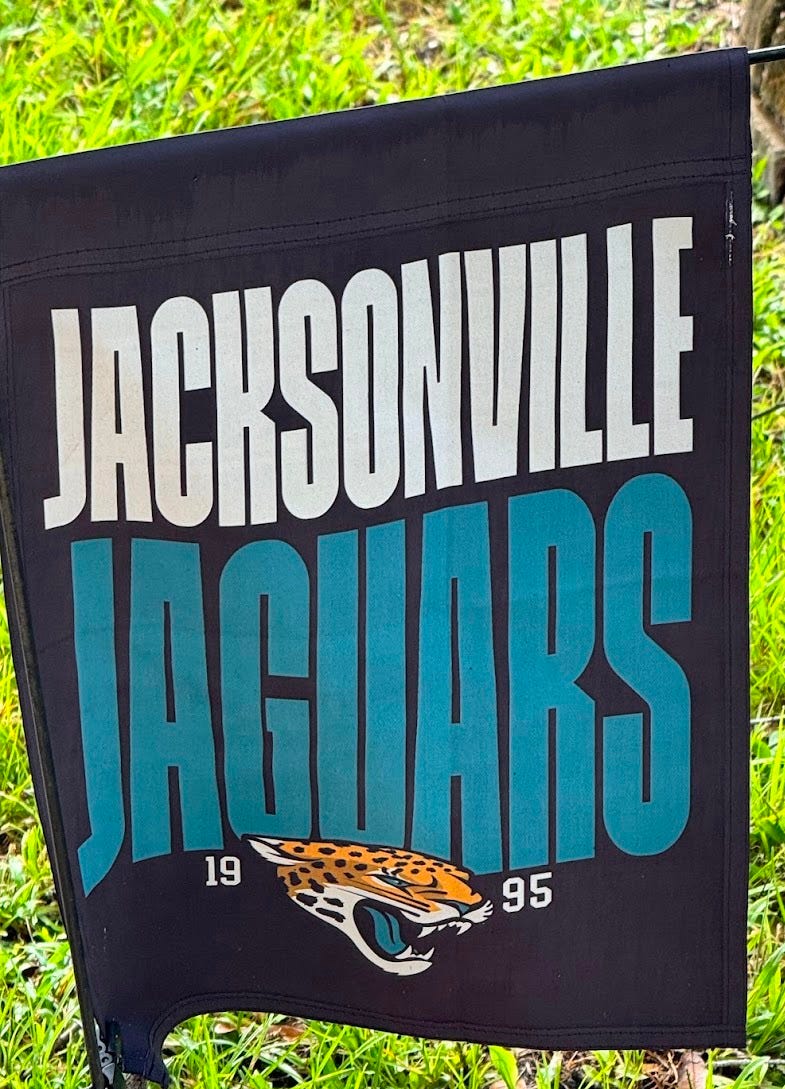A Peek Into my Ledger
The Moral Accounting of a Day at Stadium
When we think about moral choices, or putting good into the world, what we imagine are probably the things that make us saints or sinners.
Donating to a food bank – a credit on the ledger.
Taking the last piece of key lime pie that you hid after telling your wife it was gone – small, but still a debit.
Helping feed the hungry we can see as an obvious moral good, lying to our spouse so we don’t have to share we can see as wrong, even if it is small and petty.
But can everything be run through the calculation? I went to a football game this weekend. I logged both credit and debit in my ledger.
For context, this weekend was the home opener for the Jacksonville Jaguars, the kickoff for their 2025 campaign. We have a new coach, new general manager, and hot young rookie, the vibes are brimming with hope for the future.
I am a pretty big Jags fan, in so much as I invest my emotional wellbeing into sports. I want them to win, but if they don’t, it’s a minor sour note on my Sunday. My wife and I have season tickets, but I usually don’t even attend a game until at least November, once the weather has cooled.
One of my best friend, though, is a dyed in the wool bleeds teal and gold true believer. His entire life has an undercurrent of Jaguar football, from divining the meaning of a tossed off tweet from a back up tight end in March to untold hours spent consuming a steady diet of all Jaguars related media.
He lives a couple of hours away from Jacksonville, which limits his opportunities to attend games in person. As his birthday gift over the summer, his wife connected with me and bought him a ticket to the home opener, a very winnable match up against the other 1995 NFL cat themed expansion team currently in a rebuild, the Carolina Panthers.
“Where, exactly, is the moral choice here?” you may be asking.
The moral choice is in how I engaged on gameday. If you’ve been reading Radical Kindness for a few months, you will be familiar with my ongoing issues related to chronic pain, which you can find here, and here.
I knew going into the day that being at the game was going to cost me something. I mitigate my pain by resting, either lying down, or carefully supported on the couch. Standing for three hours before kickoff at a tailgate, traipsing around the stadium, and sitting in hard plastic chairs for three hours isn’t the worst thing, but it definitely contributes to my pain.
Add to that the real feel temperature at kickoff was over 100 degrees, and it was an all around unpleasant physical experience. How long would I hold out?
And that was the decision. My friend drove all the way here for the game, specifically to attend with me. He wasn’t going to leave early. Should I sour his experience by cutting out early? He’d be disappointed but would understand. He knows all too well about what I am going through.
But what would it mean to him if I stayed for the entire game? The Jags looked good, he was going to go home having witnessed a dominant win. And we only see one another a handful of times a year. When would we see each other again?
Yes, I was uncomfortable. Yes, I had to deal with pain. But I’ve been dealing with that for four months now. But spending the day with my friend adds a link to a chain that extends back to when we met as kids all the way back in the 90s.
What does this even accomplish? Who cares if I stay for an entire NFL game?
Here’s where we can see the ripples.
· Between my friend’s wife and I, we gave him a gift that he deeply appreciated
· It strengthened our bond, which benefits us both
· What impact does he have being in a more positive mood, even just slightly, the next day?
o Reduced harm of indifference: In a sour mood, one might ignore or dismiss others. A better mood can mean less silence in the face of someone’s need, avoiding an “evil of indifference”
o Micro-choices tilt differently: A person in a slightly better mood might smile at a stranger, hold a door, or send a kind text they otherwise wouldn’t. Each becomes a recorded credit in the ledger of small goods
o Improved empathy bandwidth: A slightly lighter mindset leaves more room for perceiving context and meeting people where they are, rather than being consumed by one’s own frustration
It is all small stuff… but the small stuff matters too. Even a 1-degree course correction can change a destination.
As for recording in my ledger, it wasn’t all perfect. I had the nagging need to tell him what my attendance cost me. Not in money, that I don’t really care about. But getting home after the game, I was in a lot of pain. Later that night, I told him about it.
How is that a debit? I had to show him how much I went through for his benefit, and in the process, tainted it for him a little. I should have kept that to myself.
Logged. Reckoned. I’ll be better tomorrow.
If you're ready to explore practical philosophy for everyday ethical decisions, without the academic jargon, subscribe to Radical Kindness: Empathy as Rebellion. Every week, I share frameworks for navigating moral complexity, personal stories of growth through adversity, and tools for building a more ethical life.
Join a growing number of thoughtful readers who are figuring out how to be good humans in a complicated world.





You truly inspire in the way you look at moral credit and debits. I hope your chronic pain gets better. I think you’ve built up enough moral credit. I’ve started looking at morality differently because of you and it’s nice. It’s nice to have a way to make our own actions quantifiable. In a way, it makes me more present in my own life. So thank you Anthony!!